This article was co-authored by Marc Kayem, MD and by wikiHow staff writer, Eric McClure. Dr. Marc Kayem is a board certified Otolaryngologist and Facial Plastic Surgeon based in Beverly Hills, California. He practices and specializes in cosmetic services and sleep-related disorders. He received his Doctorate in Medicine from the University of Ottawa, is board certified by the American Board of Otolaryngology, and is a Fellow of the Royal College of Surgeons of Canada.
There are 19 references cited in this article, which can be found at the bottom of the page.
This article has been viewed 5,379 times.
Medically speaking, yawning is considered "excessive" if you're doing it more than once a minute. If you’re just yawning more than usual, there's probably a simple explanation and you can even do things to stop it if it's bothering you. If you really are yawning more than once a minute, though, there may be something else going on. In this piece, we’ll walk you through the most common (and uncommon) reasons behind frequent yawning. Just keep in mind that it’s rare for yawning to have any medical significance; if you don’t have any other symptoms, you’re probably just fine!
Steps
Sleepiness
-
It’s an obvious answer, but the odds are good you’re just tired. We don’t have any solid understanding of why we yawn when we’re sleepy, but it’s a pretty well-documented phenomenon. If you haven’t been sleeping well, you’re probably yawning a lot because your body is tired—even if your mind is wide awake at the moment. Get some sleep. If the yawning goes away when you wake up, you were just sleepy.[1] X Research source
- Insomnia can cause excessive yawning. When you don’t get enough sleep, you have to catch up on the hours you miss later. Over time, that can add up to a lot of yawning as you get progressively more tired.[2] X Trustworthy Source Centers for Disease Control and Prevention Main public health institute for the US, run by the Dept. of Health and Human Services Go to source
Fatigue
-
If you’ve been pushed to your physical limits, you may start yawning. If you started your yawning fit after you just finished lifting weights or running, yawning may be your body’s way of communicating that it needs some rest. Any kind of strenuous activity or lack of sleep can trigger this, so take it easy for a while. If the yawning stops, it’s nothing to worry about.[3] X Research source
- There’s a theory that yawning cools the brain. Since your body temperature rises when you work out, you may start yawning in the middle of a workout as well.[4] X Trustworthy Source Harvard Medical School Harvard Medical School's Educational Site for the Public Go to source
Boredom
-
We aren’t sure why, but boredom often makes people yawn. If you aren’t particularly inspired and you don’t have anything going on at the moment, you may start yawning reflexively.[5] X Trustworthy Source Library of Congress Official library of the U.S. and main research institution for Congress and the American public Go to source There’s a theory among certain researchers that yawning is a way to trigger neural activity, so this may be your body’s way of telling itself to “stay alert.”[6] X Research source
- Try doing something interesting right now. If you stop yawning, your brain was just trying to keep itself awake.
Stress
-
Some people yawn a lot when they’re under pressure. This is a particularly well-documented phenomenon with Olympic runners, but any kind of stress can trigger a string of yawns.[7] X Research source If you’re in a particularly tense situation or you’re under a lot of pressure, wait to see if the yawning goes away when you’re in a more relaxed state.[8] X Trustworthy Source Harvard Medical School Harvard Medical School's Educational Site for the Public Go to source
- This goes back to the theory about cooling the brain. Stress can raise your body temperature, and yawning may help you get more oxygen, which can calm you down.[9] X Trustworthy Source Harvard Medical School Harvard Medical School's Educational Site for the Public Go to source
- Stress affects your quality of sleep and therefore cause excessive fatigue and tiredness. Try meditating, taking breaks and get enough sleep to reduce stress.
Social Mirroring
-
This is why it’s contagious—you intuitively yawn when you see yawning. Human beings naturally communicate through body language and behavior. This is why you might get itchy when you see someone scratch, or start laughing when you hear someone else laugh—even if nobody told a joke or it wasn’t funny. It’s the same thing with yawning![10] X Research source
- You’ve got a roughly 50% chance of yawning if you see someone else yawn.[11] X Research source If you find yourself yawning a lot as you read this article, this is why!
Headaches
-
If you’re experiencing a migraine, you may yawn repeatedly. In a study on 154 patients suffering from migraine attacks, 45% of them exhibited repetitive yawning.[12] X Trustworthy Source PubMed Central Journal archive from the U.S. National Institutes of Health Go to source The working theory here is that headaches occur when there’s a disruption in the flow of oxygen to the brain, and yawning might be your body’s way of trying to get more air with each breath.[13] X Research source
- If you don’t have a headache now but you get one an hour or two after reading this article, the headache is still probably to blame. Yawning is one of the six predictors of an upcoming migraine![14] X Research source
Sore Facial Muscles
-
Yawning is an easy and intuitive way to stretch your face. If you’ve been doing a lot of talking, chewing, or shouting, you may have irritated the muscles around your mouth or neck. Yawning is a reflexive way to stretch these muscles. The yawning should go away if you relax for a bit and don’t talk.[15] X Research source
- This is why it’s super unsatisfying to stifle a yawn. When you keep yourself from yawning, you may feel a tenseness in your jaw. That tenseness is your muscle’s way of saying, “I need to stretch!” Let it out and take a few big yawns. You’ll feel better.
Elevation
-
High altitudes cause pressure to build up in your ear. Yawning releases that pressure. If you’re on an airplane or you’re hiking in the mountains and you suddenly find yourself yawning a lot, it’s probably your body’s natural reaction to a change in the altitude.[16] X Trustworthy Source Library of Congress Official library of the U.S. and main research institution for Congress and the American public Go to source
- Some people experience some slight pain when they get this kind of pressure in their ear.[17] X Trustworthy Source Cleveland Clinic Educational website from one of the world's leading hospitals Go to source
- If you have a cold or a stuffy nose, the change in air pressure can be even more noticeable.[18] X Trustworthy Source Cleveland Clinic Educational website from one of the world's leading hospitals Go to source
Medication Side Effects
-
There are a bunch of medications that list yawning as a side effect. This is particularly common among serotonin reuptake inhibitors (SSRIs), which are a type of antidepressant used to treat depression and several other conditions.[19] X Trustworthy Source Mayo Clinic Educational website from one of the world's leading hospitals Go to source Beyond that, yawning is also a side effect of taking levodopa, dopamine agonists, morphine, methadone, lidocaine, and others.[20] X Trustworthy Source PubMed Central Journal archive from the U.S. National Institutes of Health Go to source
- If you’re taking any kind of medication (prescribed or OTC), read the labels to see if yawning or tiredness are listed as potential side effects.
- If it is your medication causing the yawning, talk to your doctor. They may be able to offer you alternatives that don’t make you tired (or trigger the yawns directly).
Sleep Apnea
-
Most sleep disorders cause yawning, but it’s really common with sleep apnea. It’s probably due to the fact that sleep apnea makes it difficult to get enough rest, but it’s not totally clear.[21] X Trustworthy Source PubMed Central Journal archive from the U.S. National Institutes of Health Go to source In either case, keep in mind that the odds are extremely low (and will be from here on out) that an underlying medical condition is causing your yawning. See your doctor to look into sleep apnea if you also suffer from any of the following:[22] X Trustworthy Source Mayo Clinic Educational website from one of the world's leading hospitals Go to source
- Loud snoring
- Headaches in the morning
- Dry mouth upon waking up
- Difficulty staying asleep
- Periods of delayed breathing in your sleep
Narcolepsy
-
People with narcolepsy yawn frequently because they’re tired. Narcolepsy’s biggest symptom is daytime sleepiness, and yawning is an annoying side effect of that. As such, every narcoleptic is likely to find themselves yawning a lot.[23] X Research source See your doctor and ask about narcolepsy if you yawn excessively and experience:[24] X Trustworthy Source National Health Service (UK) Public healthcare system of the UK Go to source
- Cataplexy (sudden muscle weakness or loss of control)
- Sleep paralysis
- Hallucinations
- Headaches, or restless sleep
- Problems recalling your behavior
Neurological Issues
-
See your doctor if you have other neurological symptoms alongside yawning. It is extremely unlikely that your yawning is a symptom of a neurological condition, but it’s possible. Yawning is usually involuntary, meaning that you don’t make a conscious decision to do it. All of this happens in the brain stem.[25] X Research source If something else is interfering with your brain’s neurons, wires can get crossed and you may start yawning. This is why yawning is frequently seen in people suffering from strokes, multiple sclerosis, Parkinson’s, and brain tumors.[26] X Research source
- See a doctor as soon as possible if you’ve noticed any other kind of involuntary or compulsive behavior alongside your excessive yawning.
Cardiovascular Issues
-
The nerve that controls your jaw is runs down near your heart. This is the vagus nerve, and a vasovagal reaction (stimulation of this nerve) can trigger yawning. To put it plainly, a sudden cardiovascular event, like a heart attack or aortic dissection, can cause you to start yawning excessively.[27] X Trustworthy Source MedlinePlus Collection of medical information sourced from the US National Library of Medicine Go to source
- If you suspect that you’re having a heart attack call emergency services immediately and get medical help.
- Symptoms of a heart attack include pressure, tightness, or pain in your chest and arms, nausea, shortness of breath, cold sweat, fatigue, and lightheadedness or sudden dizziness.[28] X Trustworthy Source Mayo Clinic Educational website from one of the world's leading hospitals Go to source
You Might Also Like

 Is Sleeping in Braids Bad for Your Hair? Protect Your Hair and Get Beachy Waves Overnight
Is Sleeping in Braids Bad for Your Hair? Protect Your Hair and Get Beachy Waves Overnight
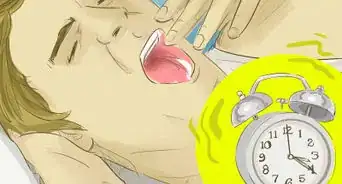
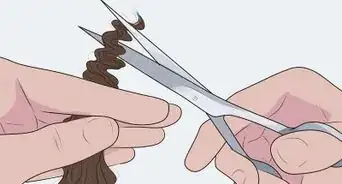 How to Sleep with a Perm (for Guys)
How to Sleep with a Perm (for Guys)
 How to Shift Realities While Sleeping
How to Shift Realities While Sleeping

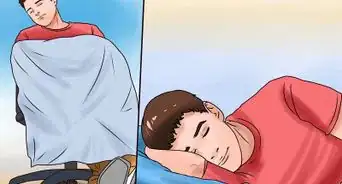
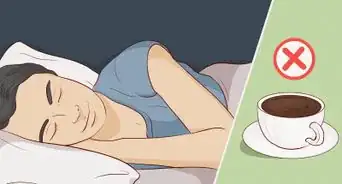
 Why Does My Girlfriend Sleep So Much? 10+ Potential Reasons Why She's Always Tired
Why Does My Girlfriend Sleep So Much? 10+ Potential Reasons Why She's Always Tired




References
- ↑ https://www.scientificamerican.com/article/why-do-we-yawn-when-we-ar/
- ↑ https://www.cdc.gov/niosh/emres/longhourstraining/debt.html
- ↑ https://www.scielo.br/j/anp/a/QbpPTHrsjfns4HTSVxhzHJt/?format=pdf&lang=en
- ↑ https://www.health.harvard.edu/newsletter_article/by_the_way_doctor_why_do_i_yawn_when_i_exercise
- ↑ https://www.loc.gov/everyday-mysteries/biology-and-human-anatomy/item/why-do-we-yawn/
- ↑ https://www.bbc.com/future/article/20140811-warning-this-may-make-you-yawn
- ↑ https://www.bbc.com/future/article/20140811-warning-this-may-make-you-yawn
- ↑ https://www.health.harvard.edu/newsletter_article/by_the_way_doctor_why_do_i_yawn_when_i_exercise
- ↑ https://www.health.harvard.edu/newsletter_article/by_the_way_doctor_why_do_i_yawn_when_i_exercise
- ↑ https://www.pbs.org/newshour/science/why-are-yawns-contagious-we-asked-a-scientist
- ↑ https://www.bbc.com/future/article/20140811-warning-this-may-make-you-yawn
- ↑ https://pubmed.ncbi.nlm.nih.gov/28960327/
- ↑ https://www.scielo.br/j/anp/a/QbpPTHrsjfns4HTSVxhzHJt/?format=pdf&lang=en
- ↑ https://www.bostontrials.com/warning-signs-of-a-migraine/
- ↑ https://www.scientificamerican.com/article/why-do-we-yawn-when-we-ar/
- ↑ https://www.loc.gov/everyday-mysteries/biology-and-human-anatomy/item/why-do-we-yawn/
- ↑ https://my.clevelandclinic.org/health/diseases/17929-airplane-ear
- ↑ https://my.clevelandclinic.org/health/diseases/17929-airplane-ear
- ↑ https://www.mayoclinic.org/diseases-conditions/depression/in-depth/ssris/art-20044825
- ↑ https://pubmed.ncbi.nlm.nih.gov/17201870/
- ↑ https://pubmed.ncbi.nlm.nih.gov/25261103/
- ↑ https://www.mayoclinic.org/diseases-conditions/sleep-apnea/symptoms-causes/syc-20377631
- ↑ https://www.uptodate.com/contents/approach-to-the-patient-with-excessive-daytime-sleepiness
- ↑ https://www.nhs.uk/conditions/narcolepsy/symptoms/
- ↑ https://www.britannica.com/video/81386/brainstem-actions-control-centre-body-blood-pressure
- ↑ https://www.scielo.br/j/anp/a/QbpPTHrsjfns4HTSVxhzHJt/?format=pdf&lang=en
- ↑ https://medlineplus.gov/ency/article/003096.htm
- ↑ https://www.mayoclinic.org/diseases-conditions/heart-attack/symptoms-causes/syc-20373106
- ↑ https://www.scielo.br/j/anp/a/QbpPTHrsjfns4HTSVxhzHJt/?format=pdf&lang=en
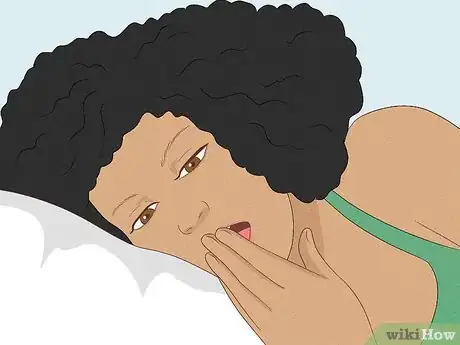
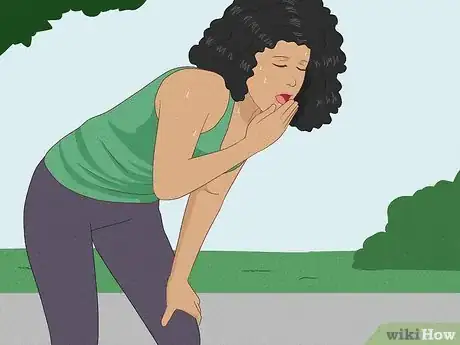
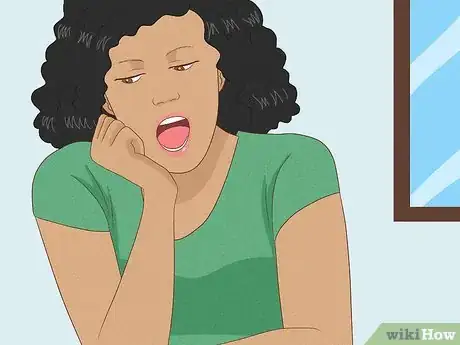
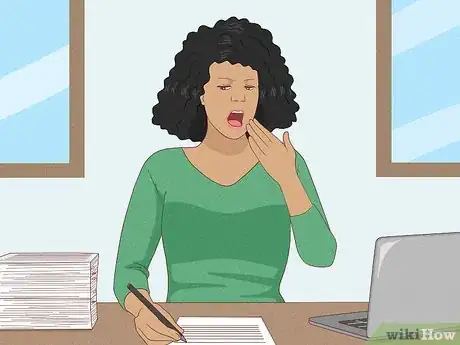
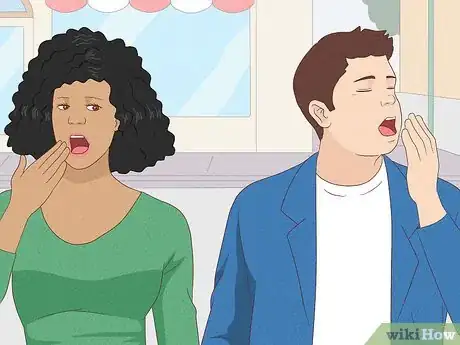
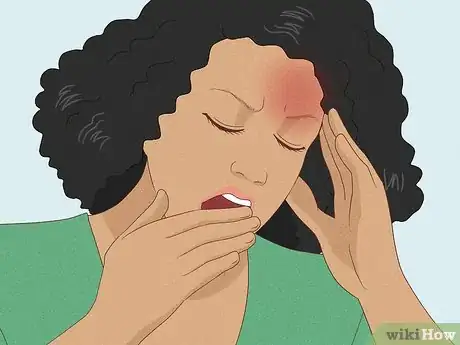
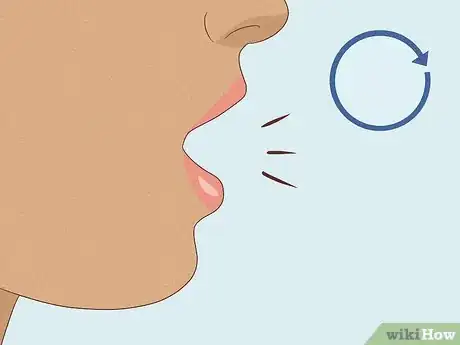
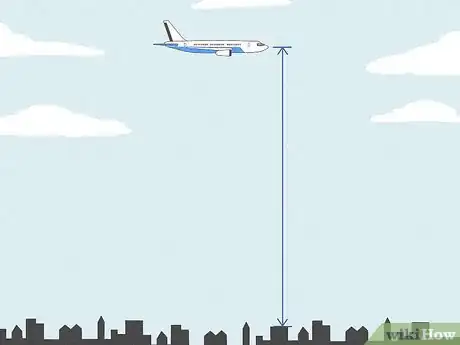
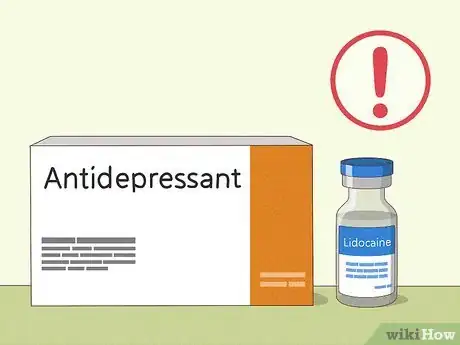
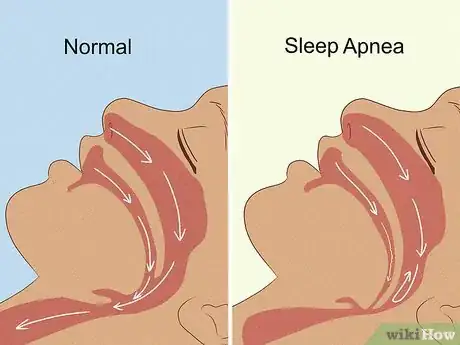
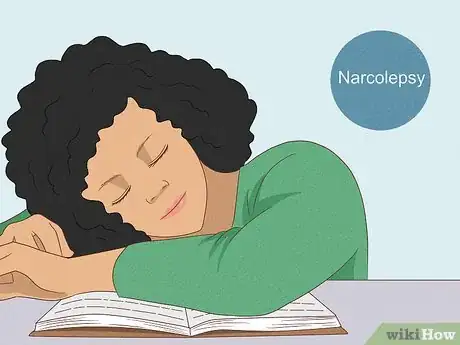
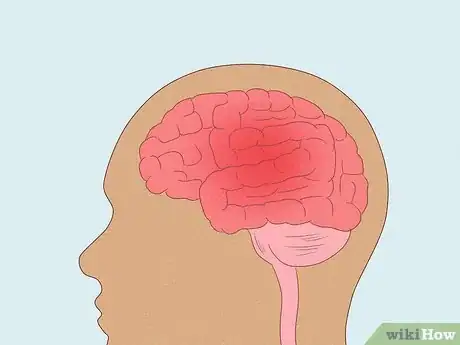
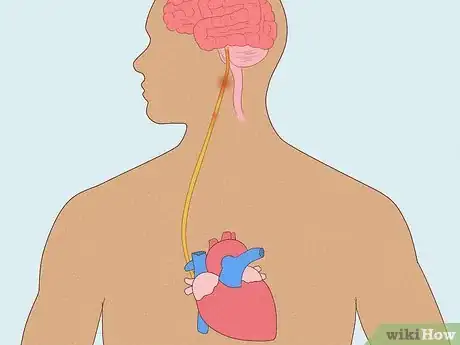









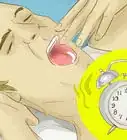




































Medical Disclaimer
The content of this article is not intended to be a substitute for professional medical advice, examination, diagnosis, or treatment. You should always contact your doctor or other qualified healthcare professional before starting, changing, or stopping any kind of health treatment.
Read More...